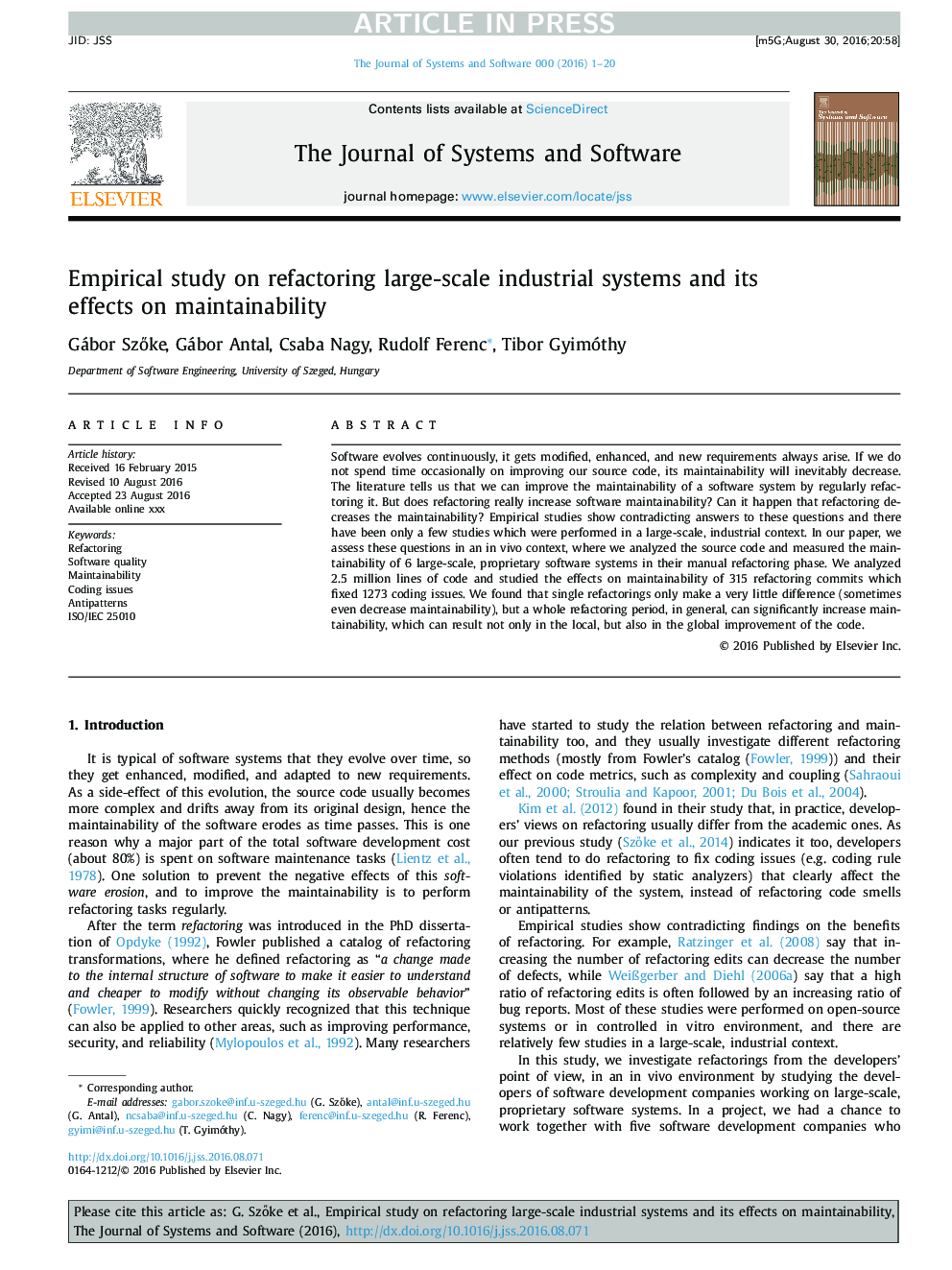| Article ID | Journal | Published Year | Pages | File Type |
|---|---|---|---|---|
| 4956441 | Journal of Systems and Software | 2017 | 20 Pages |
Abstract
Software evolves continuously, it gets modified, enhanced, and new requirements always arise. If we do not spend time occasionally on improving our source code, its maintainability will inevitably decrease. The literature tells us that we can improve the maintainability of a software system by regularly refactoring it. But does refactoring really increase software maintainability? Can it happen that refactoring decreases the maintainability? Empirical studies show contradicting answers to these questions and there have been only a few studies which were performed in a large-scale, industrial context. In our paper, we assess these questions in an in vivo context, where we analyzed the source code and measured the maintainability of 6 large-scale, proprietary software systems in their manual refactoring phase. We analyzed 2.5 million lines of code and studied the effects on maintainability of 315 refactoring commits which fixed 1273 coding issues. We found that single refactorings only make a very little difference (sometimes even decrease maintainability), but a whole refactoring period, in general, can significantly increase maintainability, which can result not only in the local, but also in the global improvement of the code.
Related Topics
Physical Sciences and Engineering
Computer Science
Computer Networks and Communications
Authors
Gábor SzÅke, Gábor Antal, Csaba Nagy, Rudolf Ferenc, Tibor Gyimóthy,
